#Knopf Poetry
Text
Leila Mottley was regularly writing and performing poetry even before she published her novel Nightcrawling at only nineteen, in 2022; today we get an advance peek into her forthcoming first collection, woke up no light. Divided into hoods—sections on Girlhood, Neighborhood, Falsehood, and Womanhood—the poems instruct us, as here, in the art of noticing, speaking boldly, and feeling deeply.
what to do when you see a Black woman cry
stop. hum a little / just for some sound / just for a way to fill us up
it is streetlamp time / all moon-cheeked black girls are
mourning / a wailing kind of undoing
don’t mistake this as a tragedy / it is sacred
don’t mistake this as a glorious pain / we hurt.
don’t tell me it will be alright.
make me a gourmet meal and don’t expect me
to do the dishes after
don’t try to hug me without asking first
if i slept last night / if i need some
jasmine tea / and a bath in a tub
deep enough to fit my grief
and if i say i want a hug
don’t touch my hair while you do it / don’t twist
my braids around your fingers
or tell me my fro is matted in the back
from banging my head
on the wall of so many askings
you think we are sobbing for the men,
but we are praying for the men / their favorite
sweat-soaked t-shirts
we are screeching for our thighs
for our throats / and our teeth-chipping / for the terror
and the ceremony / and the unending always
of this sky
so if i let you see a tear drip / if i let you see my teeth chatter
know you are witnessing a miracle
know you are not entitled to my face crack / head shake / sob
but i do not cry in front of just anyone
so stop. hum a little / just for some sound / just to fill me up
More on this book and author:
Learn more about woke up no light by Leila Mottley.
Browse other books by Leila Mottley and follow her on Instagram @leilamottley.
Click here to read Leila Mottley's curated list of recommended books about the San Francisco Bay Area.
Leila Mottley will be in Brooklyn for a Poetry Night reading and conversation with Tatiana Johnson-Boria at Books Are Magic (Montague Street location) on April 24, 2024 at 7:00 PM. The event will also be livestreamed for free on Youtube.
Visit our Tumblr to peruse poems, audio recordings, and broadsides in the Knopf poem-a-day series.
To share the poem-a-day experience with friends, pass along this link.
#MottleyAudio#poetry#knopf#poem-a-day#knopf poetry#national poetry month#poetry month#knopfpoetry#poem#Leila Mottley#woke up no light#what to do when you see a Black woman cry
143 notes
·
View notes
Text
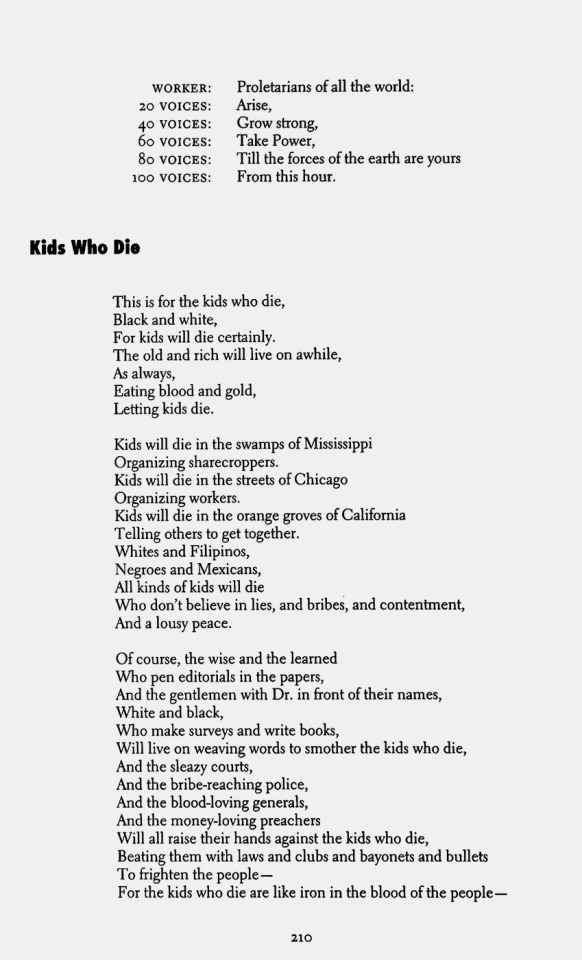
Langston Hughes, Kids Who Die (1938), in The Collected Poems of Langston Hughes, (1994), Edited with an Introduction by Arnold Rampersad, Alfred A. Knopf, New York, NY, 1997, pp. 210-211
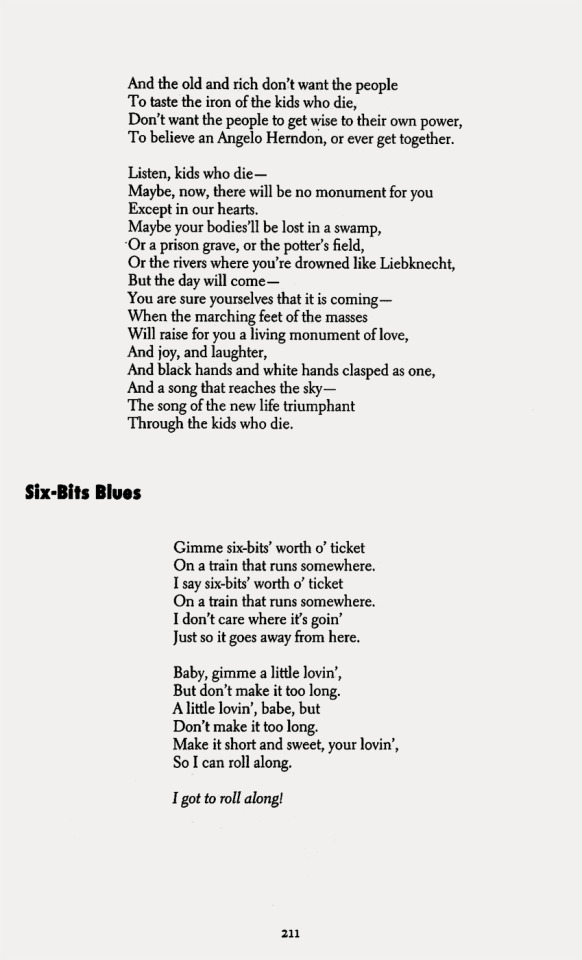
«My one regret about my fine time of learning and discovery at Columbia is the knowledge that other African Americans who later went on to become movers and shakers in the world were turned away from the university. […] Langston Hughes, accepted at Columbia University in the early twenties, was denied a room in the dormitory because he was black. He lived in the Harlem YMCA, spent much of his time exploring the cultural attractions of Harlem, and dropped out after only a year at Columbia. He eventually graduated from Lincoln, a black college in Pennsylvania. By 1926, he had published his first volume of poetry. The rest is history.»
– Wendy Jones, Columbia and Race: In the Right and in the Wrong, «Write Columbia's History». C250 Perspectives, Columbia University, New York, NY, [2003-2004]
#graphic design#poetry#book#langston hughes#arnold rampersad#david roessel#alfred a. knopf#1930s#1990s
41 notes
·
View notes
Link
"Ask, now that body shines / no longer, by what light you learn these lines." Here I reflect on James Merrill's poem "b o d y."
0 notes
Note
what does the fox say?
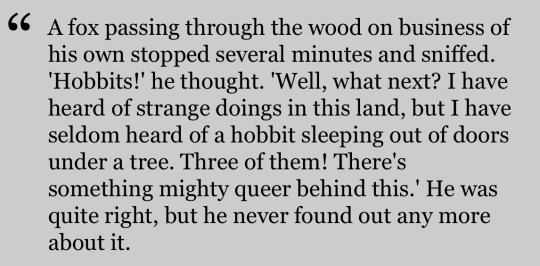
Okay, not poetry, but I couldn’t resist.
An actual fox poem:
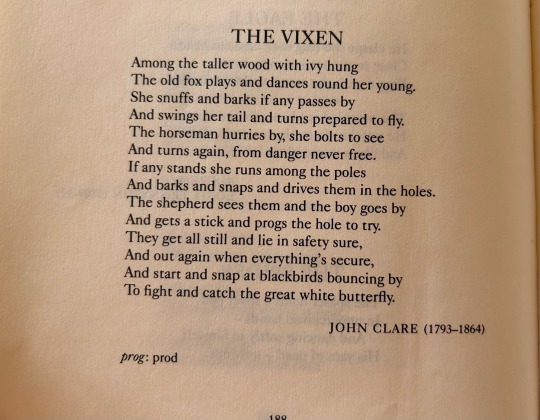
Find it in my favorite young peoples anthology, The Everyman Poetry Anthology for Children (Knopf, 1994)
8 notes
·
View notes
Text
I’m just sad. Aren’t I supposed to talk about that? ...The big pathological sad. Whether I’m actually thinking about it or not. It’s like a giant bowling ball on the bed, everything kind of rolls into it.” “Maybe you don’t believe God wants you to be happy? God, your mother, poetry, whatever. What makes you so special that everyone else deserves that except you?”
— Kaveh Akbar, Martyr!: A Novel (Knopf, January 23, 2024)
13 notes
·
View notes
Text
April 17: police and diarrhea

*****
police
and
diarrhea
the stench of
routine
*****
Found poem by Sara Adams. Poem created from phrases on a single page of source text. Words written approximately where the words fall on the page.
Source text: Allende, Isabel. House of the Spirits. Alfred K. Knopf, Inc., 1985. Pg 273.
For more info on this found poetry project, check out thepoeming.tumblr.com!
7 notes
·
View notes
Text
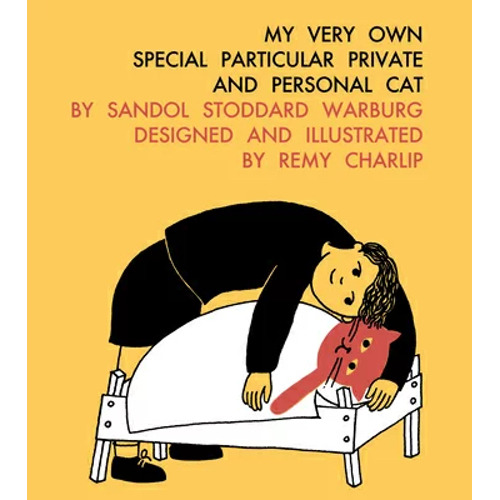

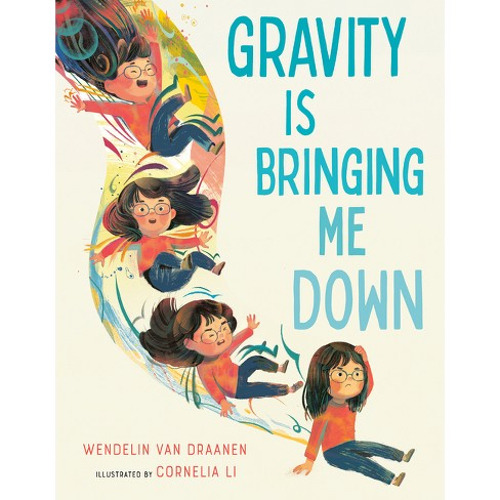


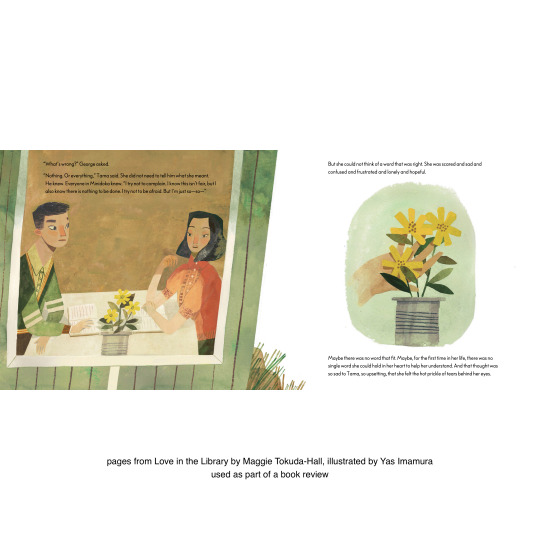
My Very Own Special Particular Private And Personal Cat by Sandol Stoddard Warburg, designed and illustrated by Remy Charlip. Enchanted Lion, 2023. (Originally published in 1963.) 9781592703852. http://www.powells.com/book/-9781592703852?partnerid=34778&p_bt
I love everything about this book: the poetry, the illustrations, the orange-yellow paper, and especially the layout, which helps the words and illustrations work together. A child talks about playing with his cat, and the cat is clearly not having a good time and finally runs off. The story really gets going in the second half, when it shifts into the cat's point of view.
Also: I loved the reproduction of Remy Charlip's signature on the "This book belongs to __" page.
Gravity Is Bringing Me Down by Wendelin Van Draanen, illustrated by Cornelia Li. Alfred A. Knopf, 2024. 9780593375921. https://www.powells.com/book/-9780593375921?partnerid=34778&p_bt
Gravity is in a bad mood, and it's making Leda's school day pretty rough. (Don't worry, she makes up with gravity later in the book.) The story is great, and a fun way to introduce kids to science, but Li's illustrations make the book amazing; the way she draws the sun is my favorite thing in the book.
Love in the Library by Maggie Tokuda-Hall, illustrated by Yas Imamura. Candlewick, 2022. Includes an author's note at the end. 9781536204308. https://www.powells.com/book/-9781536204308?partnerid=34778&p_bt
The story of George and Tama Tokuda, the author's maternal grandparents, who fell in love in the Minidoka incarceration camp in Idaho. (Tama worked in the library during their incarceration; George came in all the time and checked out more books than anyone could possibly read.) This is the best picture book on the internment of Japanese Americans I've read, and the most beautifully
9 notes
·
View notes
Text
August 2023 Diverse Reads

August 2023 Diverse Reads
•”Happiness Falls” by Angie Kim, August 29, Hogarth Press, Literary Mystery
•”Every Drop Is a Man's Nightmare” by Megan Kamalei Kakimoto, August 29, Bloomsbury Publishing, Short Story Collection — Fairy Tales, Folk Tales, Legends & Mythology (Hawaiian Identify)
•”The Heaven & Earth Grocery Store” by James McBride, Riverhead Books, Historical
•”Family Lore” by Elizabeth Acevedo, August 1, Ecco Press, Literary/Magical Realism
“A Council of Dolls” by Mona Susan Power, August 7, Mariner Books, Literary — Coming of Age/Native American & Aboriginal/Magical Realism
•”Tomb Sweeping: Stories” by Alexandra Chang, August 8, Ecco Press, Short Story Collection — Asian American
•”The End of August” by Yu Miri, Translated by Morgan Giles, August 1, Riverhead Books, Historical/Saga
•”Holler, Child: Stories” by Latoya Watkins, August 29, Tiny Reparations Books, Short Story Collection — African American
•”Vampires of El Norte” by Isabel Cañas, August 15, Berkley Books, Gothic Thriller/Horror/Suspense
•”Las Madres” by Esmeralda Santiago, August 1,
Knopf Publishing Group, Literary
•”Daughters of Latin America: An International Anthology of Writing by Latine Women” by Sandra Guzman, August 15, Amistad Press, Anthology — American: Hispanic & Latino
•”Falling Back in Love with Being Human: Letters to Lost Souls” by Kai Cheng Thom, August 01, Dual Press, Nonfiction/Poetry/Motivation
•”The Art of Scandal” by Regina Black, August 1, Grand Central Publishing, Romance
•”Her Radiant Curse” by Elizabeth Lim, August 29, Alfred A. Knopf Books for Young Readers, Fantasy/Fairy Tales/Folklore
•”The Apology” by Jimin Han, August 1, Little Brown and Company, Family Saga/Magical Realism
•”The Water Outlaws” by S. L. Huang, August 22, Tordotcom, Fantasy
•”The Queen of the Valley” by Lorena Hughes, August 22, Kensington Publishing, Historical
•”I Will Greet the Sun Again” by Khashayar J. Khabushani, August 1, Hogarth Press, Contemporary — Coming of Age/LGBTQ+/Muslim
•”The Peach Seed” by Anita Gail Jones, August 1, Henry Holt & Company, Literary
•”Lush Lives” by J. Vanessa Lyon, August 1, Roxane Gay Books, Literary
Happy Reading!
Mo✌️
#books#bookworm#bookish#bibliophile#book lover#bookaddict#reading#book#booklr#bookaholic#reading list#read#reader#books and reading#booklover#reading life#reading recommendations#book rec#book list
17 notes
·
View notes
Text
Beyond Pleasure
Gradually we realize what is felt is not so important
(however lovely or cruel) as what the feeling contains.
Not what happens to us in childhood, but what was
inside what happened. Ken Kesey sitting in the woods,
beyond his fence of whitewashed motorcycles, said when
he was writing on acid he was not writing about it.
He used what he wrote as blazes to find his way back
to what he knew then. Poetry registers
feelings, delights and passion, but the best searches
out what is beyond pleasure, is outside process.
Not the passion so much as what the fervor can be
an ingress to. Poetry fishes us to find a world
part by part, as the photograph interrupts the flux
to give us time to see each thing separate and enough.
The poem chooses part of our endless flowing forward
to know its merit with attention.
Jack Gilbert, Refusing Heaven: Poems (Alfred A. Knopf, 2005)
7 notes
·
View notes
Text
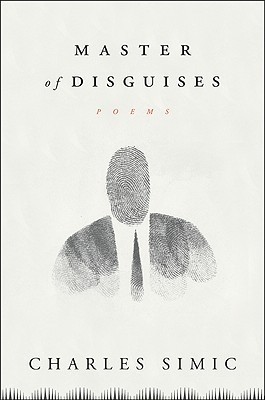
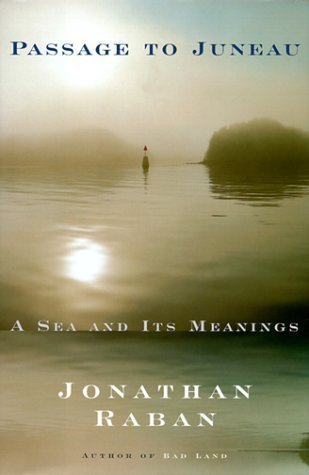
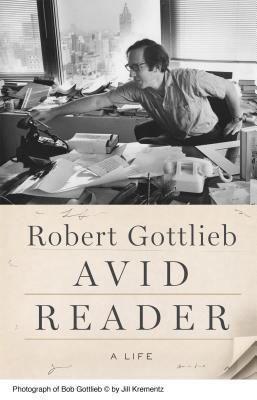
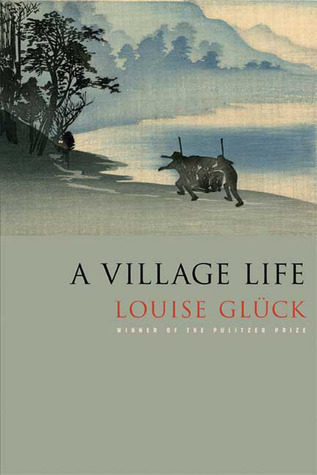
In Memoriam: Authors We Lost in 2023
Master of Disguises by Charles Simic
In this volume of poetry, Charles Simic shows the height of his poetic powers, as its poems mine the rich strain of inscrutability in ordinary life, until it is hard to know what is innocent and what ominous. The face of a girl carrying a white dress from the cleaners with her eyes half-closed. The Adam & Evie Tanning Salon at night. A sparrow on crutches. A rubber duck in a shooting gallery on a Sunday morning. And someone in a tree swing, too old to be swinging, blowing a toy trumpet at the sky. Simic served as poet laureate of the United States from 2007-2008.
Charles Simic passed away on January 9th.
Passage to Juneau by Jonathan Raban
In this volume, travel writer Jonathan Raban takes us along the Inside Passage, 1,000 miles of often treacherous water, which he navigates solo in a 35-foot sailboat. Throughout, Raban offers captivating discourses on art, philosophy, and navigation; an unsparing narrative of personal loss; and insight into the immeasurable divide between the Northwest's Indians and its first European explorers over a gulf of centuries.
Jonathan Raban passed away on January 17th.
Avid Reader by Robert Gottlieb
After editing The Columbia Review, staging plays at Cambridge, and a stint in the greeting-card department of Macy's, Robert Gottlieb stumbled into a job at Simon and Schuster. By the time he left to run Alfred A. Knopf a dozen years later, he was the editor in chief, having discovered and edited Catch-22 and The American Way of Death, among other bestsellers. At Knopf, Gottlieb edited an astonishing list of authors, such as Toni Morrison, John le Carré, and Michael Crichton. In this memoir, Gottlieb writes with wit and candor about the challenges and satisfactions of running America's preeminent magazine.
Robert Gottlieb passed away on June 14th.
A Village Life by Louise Glück
In her eleventh volume of poetry, Louise Glück begins in the topography of a village, a Mediterranean world of no definite moment or place. Glück was known as a lyrical and dramatic poet; while her manner was novelistic, she focused not on action but on pauses and intervals, moments of suspension (rather than suspense), in a dreamlike present tense in which poetic speculation and reflection are possible. She also served as poet laureate of the United States from 2003 to 2004.
Louise Glück passed away on October 13th.
#in memoriam#nonfiction#poetry#reading recommendations#reading recs#book recommendations#book recs#library books#tbr#tbr pile#to read#booklr#book tumblr#book blog#library blog#readers advisory
4 notes
·
View notes
Text
The National Book Award finalists have been announced.

2023 Longlist for the National Book Award for Fiction:
Nana Kwame Adjei-Brenyah, Chain-Gang All-Stars Pantheon Books / Penguin Random House
Aaliyah Bilal, Temple Folk Simon & Schuster
Eliot Duncan, Ponyboy W. W. Norton & Company
Paul Harding, This Other Eden W. W. Norton & Company
Tania James, Loot Knopf / Penguin Random House
Jayne Anne Phillips, Night Watch Knopf / Penguin Random House
Mona Susan Power, A Council of Dolls Mariner Books / HarperCollins Publishers
Hanna Pylväinen, The End of Drum-Time Henry Holt and Company / Macmillan Publishers
Justin Torres, Blackouts Farrar, Straus and Giroux / Macmillan Publishers
LaToya Watkins, Holler, Child Tiny Reparations Books / Penguin Random House
2023 Longlist for the National Book Award for Nonfiction:
Ned Blackhawk, The Rediscovery of America: Native Peoples and the Unmaking of U.S. History Yale University Press
Jonathan Eig, King: A Life Farrar, Straus and Giroux / Macmillan Publishers
Viet Thanh Nguyen, A Man of Two Faces: A Memoir, A History, A Memorial Grove Press / Grove Atlantic
Prudence Peiffer, The Slip: The New York City Street That Changed American Art Forever Harper / HarperCollins Publishers
Donovan X. Ramsey, When Crack Was King: A People’s History of a Misunderstood Era One World / Penguin Random House
Cristina Rivera Garza, Liliana’s Invincible Summer: A Sister’s Search for Justice Hogarth / Penguin Random House
Christina Sharpe, Ordinary Notes Farrar, Straus and Giroux / Macmillan Publishers
Raja Shehadeh, We Could Have Been Friends, My Father and I: A Palestinian Memoir Other Press
John Vaillant, Fire Weather: A True Story from a Hotter World Knopf / Penguin Random House
Kidada E. Williams, I Saw Death Coming: A History of Terror and Survival in the War Against Reconstruction Bloomsbury Publishing
2023 Longlist for the National Book Award for Poetry:
John Lee Clark, How to Communicate W. W. Norton & Company
Oliver de la Paz, The Diaspora Sonnets Liveright / W. W. Norton & Company
Annelyse Gelman, Vexations University of Chicago Press
José Olivarez, Promises of Gold Henry Holt and Company / Macmillan Publishers
Craig Santos Perez, from unincorporated territory [åmot] Omnidawn Publishing
Paisley Rekdal, West: A Translation Copper Canyon Press
Brandon Som, Tripas Georgia Review Books / University of Georgia Press
Charif Shanahan, Trace Evidence Tin House Books
Evie Shockley, suddenly we Wesleyan University Press Monica Youn, From From Graywolf Press
2023 Longlist for the National Book Award for Translated Literature:
Juan Cárdenas, The Devil of the Provinces Translated from the Spanish by Lizzie Davis Coffee House Press
Bora Chung, Cursed Bunny Translated from the Korean by Anton Hur Algonquin Books / Hachette Book Group
David Diop, Beyond the Door of No Return Translated from the French by Sam Taylor Farrar, Straus and Giroux / Macmillan Publishers
Jenny Erpenbeck, Kairos Translated from the German by Michael Hofmann New Directions Publishing
Stênio Gardel, The Words That Remain Translated from the Portuguese by Bruna Dantas Lobato New Vessel Press
Khaled Khalifa, No One Prayed Over Their Graves Translated from the Arabic by Leri Price Farrar, Straus and Giroux / Macmillan Publishers
Fernanda Melchor, This Is Not Miami Translated from the Spanish by Sophie Hughes New Directions Publishing
Pilar Quintana, Abyss Translated from the Spanish by Lisa Dillman World Editions
Astrid Roemer, On a Woman’s Madness Translated from the Dutch by Lucy Scott Two Lines Press
Mohamed Mbougar Sarr, The Most Secret Memory of Men Translated from the French by Lara Vergnaud Other Press
2023 Longlist for the National Book Award for Young People’s Literature:
Erin Bow, Simon Sort of Says Disney-Hyperion Books / Disney Publishing Worldwide
Kenneth M. Cadow, Gather Candlewick Press
Alyson Derrick, Forget Me Not Simon & Schuster Books for Young Readers / Simon & Schuster
Huda Fahmy, Huda F Cares? Dial Books for Young Readers / Penguin Random House
Vashti Harrison, Big Little, Brown Books for Young Readers / Hachette Book Group
Katherine Marsh, The Lost Year: A Survival Story of the Ukrainian Famine Roaring Brook Press / Macmillan Publishers
Dan Nott, Hidden Systems: Water, Electricity, the Internet, and the Secrets Behind the Systems We Use Every Day Random House Graphic / Penguin Random House
Dan Santat, A First Time for Everything First Second / Macmillan Publishers
Betty C. Tang, Parachute Kids Graphix / Scholastic, Inc.
Yohuru Williams and Michael G. Long, More Than a Dream: The Radical March on Washington for Jobs and Freedom Farrar, Straus and Giroux Books for Young Readers / Macmillan Publishers
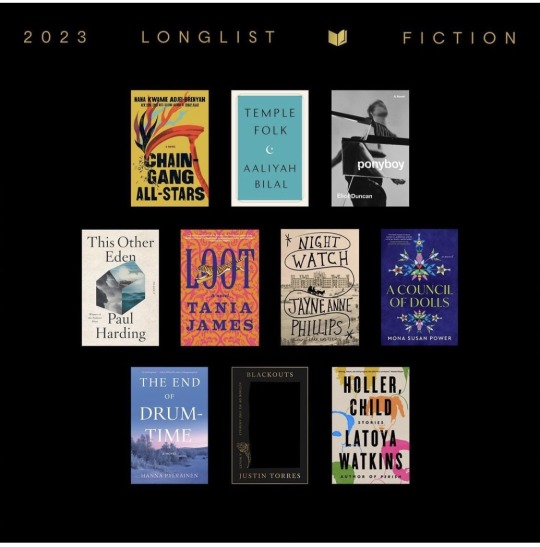
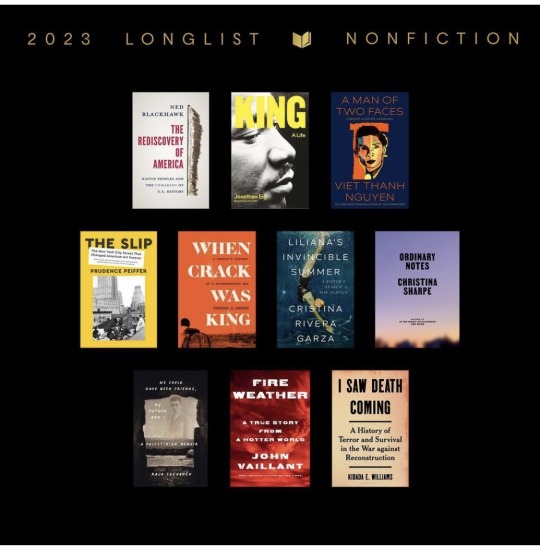
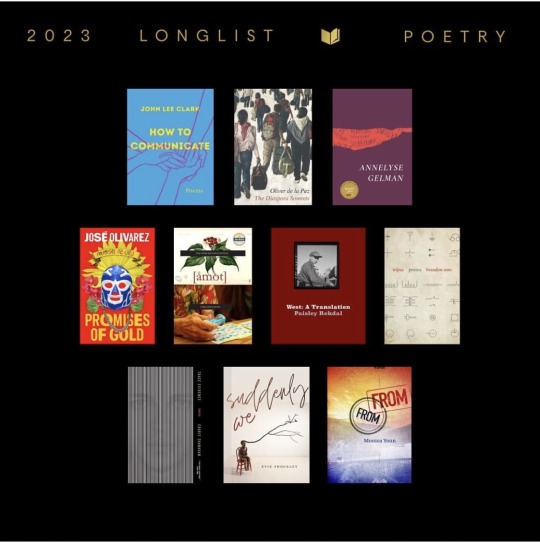
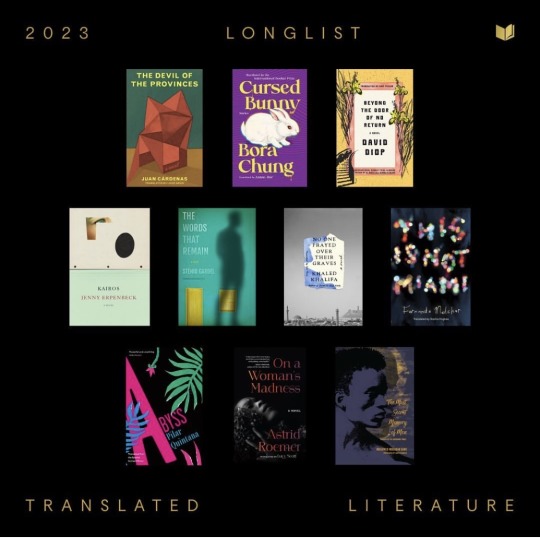

3 notes
·
View notes
Audio
Martyr!, the poet Kaveh Akbar’s propulsive debut novel, tells the tale of Cyrus Shams, the son of a lost mother (victim of a 1988 U. S. Naval snafu in the Persian Gulf that killed 290 people on a commercial airliner) and the long-suffering father who emigrated to Fort Wayne, IN with his baby boy. We meet Cyrus as a student of poetry at Keady University and a reformed addict. In this excerpt, he’s at the local open mic with his friends; we also share one of the poems from Cyrus’s bookofmartyrs.docx, helpfully supplied by Akbar, the poet behind the fictional poet.
. .
The Naples Tuesday night open mic had become a mainstay of Cyrus and Zee’s friendship. It was a small affair, not much to distinguish it from the myriad other open mics happening elsewhere in the country—except this was their open mic, their organic community of beautiful weirdos—old hippies singing Pete Seeger, trans kids rapping about liberation, passionate spoken-word performances by nurses and teenagers and teachers and cooks. As with any campus open mic, there was the occasional frat dude coming to play sets of smirky acoustic rap covers and overearnest breakup narratives. But even they were welcome, and mostly it felt like a safe little oasis of amongness in the relative desert of their Indiana college town, a healthy way to spend the time they were no longer using to get drunk or high.
Naturally, Naples didn’t have its own sound equipment, so Zee would usually show up fifteen minutes early with his beat-up Yamaha PA to set up for Sad James, who hosted every week. Sad James was called this to distinguish him from DJ James, a guy who cycled nightly through the campus bars. DJ James was not a particularly interesting artist, but he was well-known enough in the campus community to warrant Sad James’s nominative prefix, which began as a joke but somehow stuck, and to which Sad James had grown accustomed with good humor, even occasionally doing small shows under the name. Sad James was a quiet white guy, long blond hair framing his lightly stubbled face, who played intensely solemn electronic songs, punctuated by sparse circuit-bent blips and bloops, and over time at Keady, he had become one of Zee and Cyrus’s most resilient and trusted friends.
On this night, Cyrus had read a poem early, an older experimental piece from a series where he’d been assigning words to each digit 0–9, then using an Excel document to generate a lyric out of those words as the digits appeared in the Fibonacci sequence: “lips sweat teeth lips spread teeth lips drip deep deep sweat skin,” etc. It was bad, but he loved reading them out loud, the rhythms and repetitions and weird little riffs that emerged. Sad James did an older piece where the lyrics “burning with the human stain / she dries up, dust in the rain” were repeated and modulated over molten beeps from an old circuit-bent Game Boy. Zee—a drummer in his free time who idolized J Dilla and John Bonham and Max Roach and Zach Hill in equal measure—hadn’t brought anything of his own to perform that evening, but did have a little bongo to help accompany any acoustic acts who wanted it.
On the patio listening to Cyrus talk about his new project, Zee said, “I could see it being a bunch of different poems in the voices of all your different historical martyr obsessions?” Then to Sad James, Zee added, “Cyrus has been plastering our apartment with these big black-and-white printouts of all their terrifying faces. Bobby Sands in our kitchen, Joan of Arc in our hallway.”
Sad James made his eyes get big.
“I just like having them present,” Cyrus said, slumping into his chair. He didn’t add that he’d been reading about them in the library, his mystic martyrs, that he’d taped a great grid of their grayscale printed faces above his bed, half believing it would work like those tapes that promised to teach you Spanish while you slept, that somehow their lived wisdoms would pass into him as he dreamt. Among the Tank Man, Bobby Sands, Falconetti as Joan of Arc, Cyrus had a picture of his parents’ wedding day. His mother, seated in a sleeved white dress, smiling tightly at the camera while his father, in a tacky gray tux, sat grinning next to her holding her hand. Above their heads, a group of attendees held an ornate white sheet. It was the only picture of his mother he had. Next to his mother, his father beamed, bright in a way that made it seem he was radiating the light himself.
Zee went on: “So you could write a poem where Joan of Arc is like, ‘Wow, this fire is so hot’ or whatever. And then a poem where Hussain is like, ‘Wow, sucks that I wouldn’t kneel.’ You know what I mean?”
Cyrus laughed.
“I tried some of that! But see, that’s where it gets corny. What could I possibly say about the martyrdom of Hussain or Joan of Arc or whoever that hasn’t already been said? Or that’s worth saying?”
Sad James asked who Hussain was and Zee quickly explained the trial in the desert, Hussain’s refusing to kneel and being killed for it.
“You know, Hussain’s head is supposedly still buried in Cairo?” Zee said, smiling. “Cairo, which is in which country again?”
Cyrus rolled his eyes at his friend, who was, as Cyrus liked to remind him when he got too greatest-ancient-civilization-on-earth about things, only half Egyptian.
“Damn,” Sad James said. “I would’ve just kneeled and crossed my fingers behind my back. Who am I trying to impress? Later I could call take-backsies. I’d just say I tripped and landed on my knees or something.”
The three friends laughed. Justine, an open mic regular whose Blonde on Blonde–era pea-coat-and-harmonica-rack Bob Dylan act was a mainstay of the open mic, came outside to ask Zee for a cigarette. He obliged her with an American Spirit Yellow, which she lit around the corner as she began speaking into her cell phone.
In moments like these Cyrus still sometimes felt like asking to bum one too—he’d been a pack-and-a-half-a-day smoker before he got sober, and continued his habit even after he’d kicked everything else. “Quit things in the order they’re killing you,” his sponsor, Gabe, told him once. After a year clean he turned his attention to cigarettes, which he finally managed to kick completely by tapering: from one and a half packs a day to a pack to half a pack to five cigarettes and so on until he was just smoking a single cigarette every few days and then, none at all. He could probably get away with bumming the occasional cigarette now and again, but in his mind he was saving that for something momentous: his final moments lying in the grass dying from a gunshot wound, or walking in slow motion away from a burning building.
“So what are you thinking then? A novel? Or like . . . a poetic martyr field guide?” asked Zee.
“I’m really not sure yet. But my whole life I’ve thought about my mom on that flight, how meaningless her death was. Truly literally like, meaningless. Without meaning. The difference between 290 dead and 289. It’s actuarial. Not even tragic, you know? So was she a martyr? There has to be a definition of the word that can accommodate her. That’s what I’m after.”
More on this book and author:
Learn more about Martyr! by Kaveh Akbar.
Browse Kaveh Akbar's poetry collections and follow Kaveh on Instagram @kavehakbar.kavehakbar.
Visit our Tumblr to peruse poems, audio recordings, and broadsides in the Knopf poem-a-day series.
To share the poem-a-day experience with friends, pass along this link.
#poetry#poetry month#national poetry month#Knopfpoetry#Knopf Poetry#Kaveh Akbar#AkbarAudio#Arian Moayed#MoayedAudio#MartyrANovel#Martyr!#Martyr! A Novel#Excerpt
72 notes
·
View notes
Photo
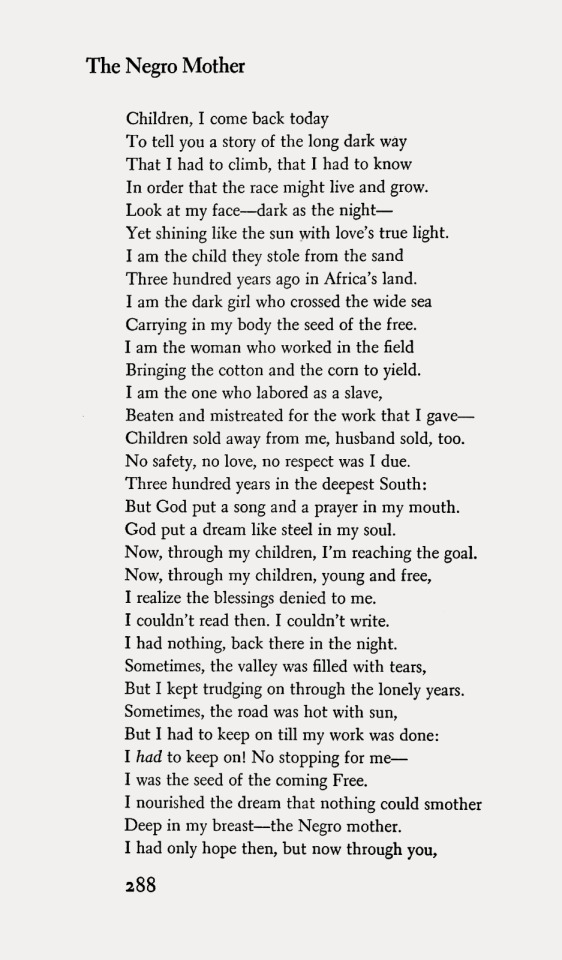

Langston Hughes, The Negro Mother [The Negro Mother, and Other Dramatic Recitations, 1931], in Selected Poems of Langston Hughes, Drawings by Edward McKnight Kauffer, Alfred A. Knopf, New York, NY, 1966, pp. 288-289
73 notes
·
View notes
Text
Transcript: 杜甫 Du Fu - 早秋苦热堆案相仍 Awful heat in early autumn, piles of paperwork keep coming
[Listen to the episode here.]
This is
早秋苦热堆案相仍
"Awful heat in early autumn, piles of paperwork keep coming"
by Du Fu.
七月六日苦炎蒸, qī yuè liù rì kǔ yán zhēng,
对食暂餐还不能。 duì shí zàn cān hái bù néng.
august sixth. baking in this awful heat
about time for a hasty meal? think again
常愁夜来皆是蝎, cháng chóu yè lái jiē shì xiē,
况乃秋后转多蝇。 kuàng nǎi qiū hòu zhuǎn duō yíng.
I suffer. and when night comes, so do the scorpions –
only to be replaced, come fall, by the flies
束带发狂欲大叫, shù dài fā kuáng yù dà jiào,
簿书何急来相仍。 bù shū hé jí lái xiāng réng.
I’m going to go mad from my ties and belts. I want to scream
ledgers and documents (cannot be urgent) keep coming.
they keep coming
南望青松架短壑, nán wàng qīng sōng jià duǎn hè,
安得赤脚踏层冰。 ān de chì jiǎo tà céng bīng.
travelling in my mind to those green pines by the ravines south of here
oh the satisfaction of bare feet breaking through a crust of ice
---
Um, happy old man Monday?? This started when I saw this Twitter thread by Liz Crash @AsFarce - this initial tweet was just captioned "Du Fu, circa 758 AD", which is the two lines about wanting to scream in his office. Presumably a lot of people found this relatable.
The original Twitter poster did a follow-up thread, which I think is important to consider for a fuller picture of 'how we got here'. Quoting:
I was instead struck by how imperial China pioneered much of what we take for granted about the modern world, particularly modern bureaucracies. writing as such emerges hand in hand with state formation. so written history is the history of states.
And also:
the British civil service was strongly influenced by the much older Chinese civil service. China is where Europe got the idea for state functions administered by politically independent qualified professionals rather than someone’s nephew
The other bit of particular context for this particular poem - which is kind of scratching the surface, really - is that this was written in the middle of the An Lushan rebellion! This was, uh, 'the previous emperor has abdicated and his third son has retaken the capital city and is forming a government. And guess who has to do a lot of work to stabilize this new government!' But y'know, truly, props to Du Fu for tweeting through it.
I really - I was really vindicated to find this blogpost on Medium by Delaine Rogers which is like a summary of five Tang-dynasty poets, and the section about Du Fu just begins:
If any ancient poet were to be on Twitter, documenting his daily experiences and thoughts, it would be Du Fu
To that end, I highly recommend David Young's book of Du Fu poetry, just entitled Du Fu: A Life in Poetry, published by Alfred A. Knopf. I find he gives Du Fu just this really wonderful, distinctive, and consistent Old Man Voice that has really made its impact on me, personally - on my personal idea of who Du Fu was.
3 notes
·
View notes
Photo


F1 Drivers as Poems Day 15/22—Nico Hülkenberg—“Keeping Things Whole,” Mark Strand 👤
“This is
always the case.
Wherever I am
I am what is missing.”
Alt text for Photo 1: A photo of Nico Hülkenberg, a mid-30s white Formula 1 racer in a green Aston Martin racing suit, sitting in a Formula 1 car of the same color with a focused expression. A green graphic of a patch of grass is in the top left corner, and a solid green bust silhouette of Nico is in the bottom right. Thin, green sans serif text in all caps reads “Nico Hülkenberg” in the top right corner.
Alt text for Photo 2: A text-based graphic on a deep green background with the same grass and silhouette graphics and driver’s name. Light-green serif text in the middle reads: “I am the absence / of field. / This is / always the case. / Wherever I am / I am what is missing. / We all have reasons / for moving. / I move / to keep things whole.” Thin, green sans serif text in all caps beneath the poem reads “—Mark Strand, “Keeping Things Whole”.”
Photo from Aston Martin F1 Team on Twitter
Poem: “Keeping Things Whole” by Mark Strand from Selected Poems (Alfred A. Knopf, Inc., 1979) via Poetry Society of America
Made with Canva
8 notes
·
View notes
Text
Somewhere in there, I had faith in the next step. One step, then another. The next steps on the journey home.
The sorts of kids who write songs or poetry or paint pictures are the sorts of kids who feel too much at times. The sorts of kids whose feelings can overpower them. In writing this now, I am brought back to the green briar and leafy trees at the edge of the school grounds in Mount Temple. I am brought back to a fretting teenager standing by the train tracks and imagining the comfort they might offer if I lay across them and gave up on hope and love. But I had faith. Somewhere in there, I had faith in the next step. One step, then another. The next steps on the journey home.
— Bono, “Surrender: 40 Songs, One Story by Bono” (Knopf, November 1, 2022)
6 notes
·
View notes